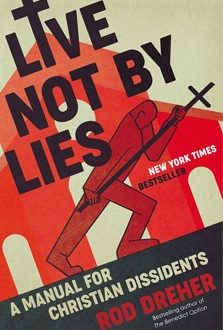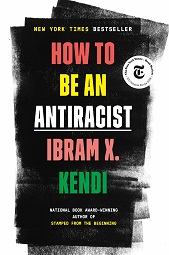I appreciate Bishop N. T. Wright’s willingness to address the church through writing popular books. Wright is the consummate scholar and is perfectly capable of producing the kind of work that would only be accessible to specialists in the field of New Testament studies. Yet over the years he has included among his prolific output books addressed to the interested layman. His recent short work, The Last Word: Beyond the Bible Wars to a New Understanding of the Authority of Scripture, is one such book.
The main thrust of Wright’s argument in The Last Word is that Christians must understand the “authority of Scripture†as a shorthand for “the authority of God exercised through scripture†(p. 25). In chapter 1, Wright says that the book aims to answer three important questions: (1) In what sense is the Bible authoritative? (2) How can the Bible be appropriately understood and interpreted? and (3) How can the Bible’s authority be brought to bear on the church and the world (p. 19)? In chapters 2-6, Wright takes a look at the critical moments in the history of Israel and the Church and how the authority of scripture was appropriated in each respective era. Chapter 7 deals with right and left wing misreadings of scripture, and chapter 8 concludes with Wright’s constructive proposal: “‘the authority of scripture,’ when unpacked, offers a picture of God’s sovereign and saving plan for the entire cosmos, dramatically inaugurated by Jesus himself, and now to be implemented through the Spirit-led life of the church precisely as the scripture-reading community†(p. 114).
There is much to commend in this short work. I appreciate Wright’s defense of the Canon against recent assaults by the likes of Bart Ehrman and Elaine Pagels (p. 62). I also appreciate Wright’s insistence upon an author-centered hermeneutic. Wright says that scripture must be interpreted in its “literal†sense in order for its authority to be realized in the life of the church. By “literal†sense, Wright means what the Reformers meant, “the sense that the first writers intended†(p. 73; cf. 135). Thus, for Wright, the work of grammatical-historical exegesis is of utmost importance (p. 112). This approach to the Bible leads us, Wright suggests, to stop treating the Bible like a repository of timeless truths, but as a story of the divine drama of redemption that has reached its climax in Jesus Christ. In all of this, Wright’s critical realist approach offers a healthy corrective to the excesses of post-modern skepticism.
Yet for all the good contained in this little book, there are some weaknesses worth considering. In The Last Word, Wright does indeed get “beyond the Bible wars.†As a matter of fact, he “gets beyond†them by avoiding them. I think this observation is true at least with respect to the issue of inerrancy, which has been the watershed issue of the “Bible Wars†in North America. Notwithstanding a few possible oblique and critical references to those who hold to inerrancy, Wright does not render an opinion on the question of inerrancy. This lacuna is a shortcoming indeed given the fact that many evangelicals have been arguing for years that the Bible’s authority depends on whether or not it errs in what it asserts.[1] Yes, Wright gets beyond that battle, but only because he does not show up for the fight.
Perhaps his reticence to engage this issue explains why Wright never quite gets around to explaining clearly what he thinks about the status of scripture as God’s word. In his critique of “fundamentalism,†Wright seems to imply that he doesn’t appreciate the quirky inerrantists and their hermeneutical approaches. But he never sets out clearly (or at least in full) what his view is on the matter. Indeed a number of his statements leave one wondering if “the authority of God exercised through scripture†reflects a Barthian perspective or something else altogether.
For instance, consider his remarks on the “inspiration†of scripture. Wright defines “inspiration†as “a shorthand way of talking about the belief that by his Spirit God guided the very different writers and editors, so that the books they produced were the books God intended his people to have†(p. 37). Yet on the very next page Wright says that even OT Israel did not identify God’s “word†with “the written scriptures†(p. 38). He also says that “We cannot reduce ‘thus says YHWH’ to ‘thus says Jeremiah’ . . . We have for too long been in thrall to philosophers like Feuerbach, who wanted to reduce all talk of God to talk of humans and their experiences†(p. 39).
Reading statements like these makes one wonder if Wright thinks Feuerbach is somehow responsible for what we find in Psalm 119, where the Psalmist clearly treats the human words of Scripture as God’s very words. Indeed, this is but one of many texts that we read in both the Old and New Testaments that speak of the words of Scripture as if they were God’s own words (e.g., Neh 8; Mt 19:4-5; Acts 4:25; 28:25; Rom 3:2; 1 Cor 6:16; 2 Cor 6:16; 2 Tim 3:16; Heb 1:5-13; 8:5, 8; 2 Pet 1:20-21; 3:16). I am, therefore, not convinced that Wright does justice to how the writers of scripture talked about other scripture.
Given the fact that he is unclear about the status of scripture as God’s words, it isn’t surprising that when Wright finally does get around to commenting on 2 Timothy 3:16-17, he says that this text “was written, not so much to give people the right belief about scripture, as to encourage them to study it for themselves†(p. 133). In other words, Wright downplays the importance of believing the “scripture†(graphÄ“) to be “God-breathed.†Yet isn’t it true that in 2 Timothy 3:16 Paul makes having a right belief about scripture (namely that it is “God-breathedâ€) the ground of its usefulness to the Christian?
Another shortcoming that one might point out is not so much a weakness as it is a detour. I notice that Wright returns to a theme time and again that does not properly have to do with the authority of scripture per se. It is his thesis that the Bible (not least in Paul’s writings) offers a critique of pagan empire (e.g., pp. 13, 47, 89, 99, 100, 112, 115, 131). The clear implication of this line is that the Bible has a particular rebuke for what Wright calls America’s “de facto world empire.†Wright thinks that the Enlightenment project has bequeathed to the world a series of failed attempts to solve the world’s problems and that America and its current “empire†is just the latest expression of that failure.
The Enlightenment failed to deliver the goods. People not only didn’t stop fighting one another, but the lands of the Enlightenment became themselves embroiled in internecine conflict, while “rational†solutions to perceived problems included such Enlightenment triumphs as the Gulag and the Holocaust. The greatest of the Enlightenment-based nations, the United States of America, has been left running a de facto empire which gets richer by the minute as much of the world remains poor and gets poorer (p. 13).
Wright goes on to claim that America, “the great world empire of our own day proceeds to impose its economic, political, military and cultural will on the world†(p. 100).[2] It is true that this kind of counter-imperial (and thus anti-American) interpretation of the New Testament is all the rage in certain sectors of New Testament scholarship.[3] But the implications of this thesis are far from settled and do not in any case help to advance Wright’s argument in this book.
Interestingly, Wright indicates that this imperial, Enlightenment outlook is characteristic of American “fundamentalism.†Perhaps it is for this reason that Wright rarely misses a chance to engage in his own brand of name-it-and-shame-it (p. 22) polemics against conservative north American evangelicals, who, he claims, “choose to ignore†the Bible’s authoritative teaching on loving one’s enemies, on economic justice, and on opposing the death penalty (pp. 92-93). Disparaging American foreign policy and conservative evangelicals in America might give Wright “street creds†with liberal academics, but I suspect it will only serves to alienate large portions of his audience while detracting from the larger case that he is making about the authority of scripture.
Nevertheless, Wright might have had more success with this line had his description of “fundamentalists†not been so given to overstatement. The majority of evangelicals in America do hold to the inerrancy position, but they do not all fit into the “fundamentalist†picture that Wright draws. The hermeneutical errors that he charges against “fundamentalists†are not shared by all inerrantists. I’m not sure, therefore, that Wright understands theological conservatives in North America as well as he thinks he does. If his list of “Misreadings of the Right†is any indication (pp. 106-108), I would have to say that he has a better handle on caricature than he does on reality.
I generally enjoy N. T. Wright’s work, and my reading of The Last Word was no exception. Yet I think he left a few too many things undone in this book. He does warn the reader at the outset that “the present book makes no pretense at completeness†(p. xii). But one wonders why he had more to say about counter-imperial readings of the New Testament than he does about the question of inerrancy and how it relates to the authority of scripture. If the authority of scripture has anything to do with the Scripture’s right to command belief and action, then surely Wright could have dwelt a little more on the status of scripture as God’s words. Unfortunately, it appears that Wright was a little too eager to get “beyond the Bible wars†to engage such questions. The reader, therefore, will likely be tempted to get beyond Wright’s book if he or she wants to find the answers.
______________________
[1] See for instance Number 5 in the “Short Statement,†in the Chicago Statement on Biblical Inerrancy (1978): “The authority of Scripture is inescapably impaired if this total divine inerrancy is in any way limited or disregarded, or made relative to a view of truth contrary to the Bible’s own; and such lapses bring serious loss to both the individual and the Church.â€
[2] One wonders if Wright might also lament the “imperial†implications of this observation: “North America . . . happens now to be the major center of biblical scholarship, having supplanted Germany in this respect over the last generation or so†(p. 94).
[3] N. T. Wright (along with Richard Horsley, John Dominic Crossan, Jonathan Reed, et. al.) is considered to be one of the chief proponents of counter-imperial readings of the New Testament, as is evidenced by his many writings and his participation in Richard Horsley’s “Paul and Politics Group†of the Society of Biblical Literature.
For more on this movement, see my forthcoming paper to be presented at the 2006 annual meeting of the Evangelical Theological Society: “The Fresh Perspective on Paul: A Theology of Anti-Americanism.†See also Richard Horsley, Jesus and Empire: The Kingdom of God and the New World Disorder (Minneapolis: Fortress, 2003); Richard Horsley, ed., Paul and Empire: Religion and Power in Roman Imperial Society (Harrisburg, PA: Trinity Press International, 1997); Richard A. Horsley, ed., Paul and Politics: Ekklesia, Israel, Imperuim, Interpretation: Essays in Honor of Krister Stendahl (Harrisburg, PA: Trinity Press International, 2000); John Dominic Crossan and Jonathan L. Reed, In Search of Paul: How Jesus’ Apostle Opposed Rome’s Empire with God’s Kingdom (New York: HarperSanFrancisco, 2004).




One Comment
Pingback: